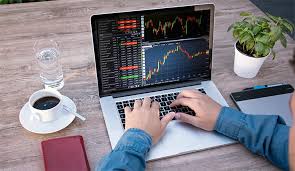
Understanding Forex Trading Accounts: A Complete Guide
Forex trading has become increasingly popular, drawing in millions of traders from around the world. A fundamental component of engaging in forex trading is understanding the various types of forex trading account Trading Brokers available. In this article, we delve into the intricacies of forex trading accounts, what they entail, and how to choose the right one for your trading needs.
What is a Forex Trading Account?
A forex trading account is a platform provided by a brokerage to allow traders to buy and sell foreign currencies. These accounts enable traders to engage with the forex market, utilizing leverage and margin for trading opportunities. Forex accounts can vary significantly in terms of features, trading instruments, and services they offer to both beginner and experienced traders.
Types of Forex Trading Accounts
Forex brokers typically offer several types of accounts to cater to a wide range of trading strategies and experience levels. Below are the main types of forex trading accounts:
1. Demo Account
A demo account is a virtual trading account that allows traders to practice with fictional money without risking real funds. It is an excellent way to understand the trading platform, practice trading strategies, and familiarize oneself with the forex market. Most brokers offer demo accounts that remain accessible for a limited period or until a specified amount of virtual capital is used.
2. Standard Account
Standard accounts are the most common type of trading account and are suitable for traders with varying levels of experience. These accounts typically require a larger initial deposit and often offer access to a large variety of currency pairs. Standard accounts may offer leverage options, providing traders the opportunity to control more substantial positions than their initial investment.
3. Mini Account
Mini accounts are designed for traders who wish to trade with smaller amounts of money. These accounts usually have a lower initial deposit requirement compared to standard accounts. Mini accounts enable traders to trade in smaller lot sizes (usually 10,000 units), making them appealing to beginners and those looking to experiment with different trading strategies.

4. Micro Account
Micro accounts are similar to mini accounts but allow for even smaller trades, often starting at 1,000 units. These accounts are an excellent choice for novice traders who want to learn the ropes without the pressure of significant financial commitments. Micro accounts typically have lower leverage options and spreads, allowing for more conservative trading.
5. Managed Account
A managed account is where a trader delegates trading decisions to a professional trader or a financial manager. This option is suitable for individuals who may not have the time or expertise to trade actively. Managed accounts often come with higher fees and can require a significant initial deposit, depending on the manager’s strategy and performance.
Key Features to Consider
When selecting a forex trading account, several essential features should be evaluated:
1. Leverage
Leverage allows traders to control larger positions than their initial investments. While it can significantly amplify gains, it can also increase risks. It is crucial to choose a leverage option that aligns with your risk tolerance and trading strategy.
2. Spreads and Commissions
Different accounts come with various spreads and commission structures. Understanding these factors is vital as they directly impact your trading costs. Typically, lower spreads are beneficial for high-frequency trading, while commission-based accounts might suit long-term traders better.
3. Account Currency
Forex trading accounts can be denominated in different currencies. Choose an account that matches your primary trading currency to minimize conversion fees. This is particularly important for traders who regularly withdraw profits.
4. Trading Tools and Features
Look for accounts that offer additional trading tools, such as charting software, market analysis, and economic calendars. These features can enhance your trading experience and provide insights to make informed decisions.
5. Customer Support

Reliable customer support is crucial for addressing your queries or issues. Ensure that the broker offers accessible support via multiple channels, such as email, live chat, or phone.
The Process of Opening a Forex Trading Account
Opening a forex trading account is usually a straightforward process. Below are the typical steps involved:
1. Choose a Broker
Research and select a reputable forex broker that aligns with your trading needs. Ensure that the broker is regulated and offers the necessary account types, features, and tools for your trading.
2. Complete the Application
Once you’ve selected a broker, fill out the application form for the trading account. This form typically requires personal information, financial details, and trading experience.
3. Provide Verification Documents
To ensure compliance with regulations, brokers require identification and proof of address. This process is known as KYC (Know Your Customer). Commonly accepted documents include a passport, utility bill, or bank statement.
4. Fund Your Account
After your account is verified, fund it using one of the available payment methods, such as bank transfer, credit card, or electronic payment systems. Ensure you meet the minimum deposit requirement for the type of account you’re opening.
5. Start Trading
With a funded account, you are ready to start trading. Familiarize yourself with the trading platform, practice risk management, and develop a trading strategy to increase your chances of success.
Conclusion
Understanding forex trading accounts is crucial for anyone looking to venture into the world of forex trading. Each account type caters to different trading styles and experience levels, and choosing the right one can significantly impact your trading success. Take the time to evaluate your options, consider the features that matter most to you, and remember to practice effective risk management. With the right approach, trading can be a rewarding journey.